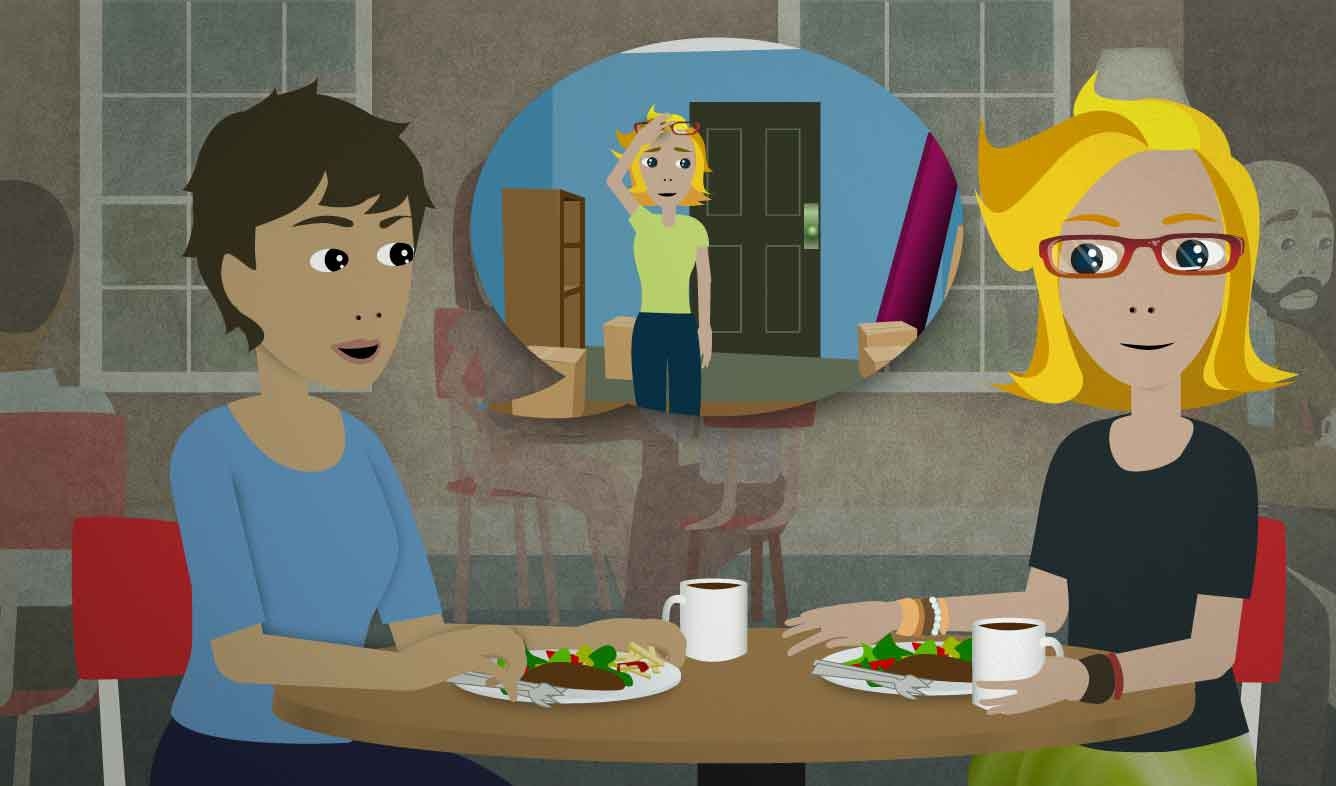“All packed up for the big move?”
You go to dinner with a friend who is moving in three days. You ask if she is ready for it.
All packed up for the big move?
Want Video and Sound? Follow us on YouTube

All (adjective)?
When you ask "All ___?" it means "Are you completely ___?" For example, if you're getting ready to leave home for a vacation, you can ask your family:
All set?
If it's a cold day and you've put an extra blanket on your daughter's bed, you can ask:
All warm and comfy?
This phrase sounds really positive and comforting.
the move
When you move from one house or apartment (or office building) to another, you can call that situation "a move":
Are you all packed up for your move?
pack up
“Pack up” is almost the same as “pack”: to put your clothes and other things into boxes or a suitcase, for the purpose of moving or travel. We sometimes add “up” for emphasis, or to show completeness. Even though it doesn’t change the meaning much, English speakers add “up” to their verbs quite often.
Let’s pack up early so we can just relax after.
Some other phrasal verbs with 'up' include:
- finish up
- clean up
- hurry up
- listen up to (something)
- write up (something)
- read up on (something)
- drink up
- eat up
- draw up (something)
- think up (something).
the big (something)
We use “the big (something)” to describe an event that everyone (or at least the speaker) is very excited about, and has been waiting for. Some examples include:
- the big day
- the big opening
- the big game
- the big show
- the big surprise
- the big reveal.
Here's an example of how to use "the big ___":
Tomorrow’s the big day!
Using the article “the” shows that both the speaker and listener are familiar with the topic. You could also use a possessive pronoun like “your”:
Your big game is tomorrow, isn't it?
